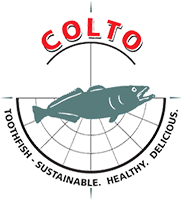SEAFOODNEWS.COM by John Sackton – Aug 11, 2014
Such was the case with a political reporter for the New Zealand herald, who got hold of the country’s trade minister’s credit card bills, and found that in Singapore, he had ordered toothfish, or Chilean Sea Bass.
The reporter, doubtless remembering the controversy over IUU fishing and depletion of toothfish, promptly pounced, claiming the minister was eating a ‘protected fish’, i.e that he was being a hypocrite for dining on a fish that New Zealand and others were going to great lengths to protect.
The New Zealand Herald said “Trade Minister Tim Groser is being singled out for scrutiny after he and two officials ordered Antarctic toothfish – a species which New Zealand is going to huge lengths to protect – at a Singapore restaurant in January, the ministerial credit card receipts released by the Department of Internal Affairs show.
The receipt says Mr Groser spent $300 on the meal at Table for 7, which included Chilean sea bass – also known as Patagonian or Antarctic toothfish – and a $90 bottle of Central Otago pinot noir.
Mr Groser was in Singapore for Trans-Pacific Partnership talks, and the meal was declared as a “delegation dinner hosted by the minister”.
New Zealand has been working for years with the United States to establish a marine reserve in Antarctica to protect species including the toothfish.
The dish has been banned by some US chefs and supermarkets. It is rarely sold in New Zealand because it is a delicacy that fetches around $70 a kilogram in the US and Asia.”
But, the facts can always be counted on. The fish in question, sold by Austral Fisheries, came from the Heard Island and McDonald Islands fishery, which is certified sustainable by the Marine Stewardship Council and rated “Best Choice” by the Monterey Bay Aquarium Seafood Watch Program.
Furthermore, the recovery of toothfish, over 70% of which is now in certified fisheries, is a huge industry success story. The Coalition of Legal Toothfish Operators (COLTO) have been highly successful in pushing pirates out of the fishery, gaining international support for crackdowns and port bans that have ended the rampant illegal fishing, and they have successfully sought international recognition of their conservation efforts and ability to fish this stock within scientifically managed and fully sustainable limits.
The Trade Minister, with his meal, was in fact the beneficiary of a huge fisheries success story.
“It is unfortunate that these baseless claims have been made without care to check the facts”, says George Clement, Chief Executive of the Deepwater Group. “One of the strengths of MSC certification is the robust chain of custody which ensures traceability of product from the ocean to the consumer’s plate”.
“We take sustainability seriously”, says Eugenia Ong, Chef Director from Table at 7, the restaurant where Mr Groser dined. “Our toothfish is sourced from Austral Fisheries who catches the fish in the Australian Heard Island Territories. The fish is MSC certified”.
“Like New Zealand, Australia takes pride in its sustainably managed fisheries. We work hard to ensure as many of our fisheries as possible are able to meet the very high standards required to obtain MSC certification. It’s a shame that there are still those who do not bother to educate themselves about the work we are doing”, says David Carter, Chief Executive Officer of Austral Fisheries.
Alison Barratt of Monterey Bay Aquarium sums it up in National Geographic: “For many years conscious consumers have observed a “red list”: swordfish, monkfish, Chilean seabass (toothfish) etc. But over time things change. These species were previously all on the Seafood Watch “red list” but the science no longer supports that. It’s change we should welcome, ”
One of the problems, and it is not really the reporter’s fault, is that when a fishery has recovered, few NGO’s spend anywhere near the money, time or public education dollars they spent on the campaign to demonize that fishery. IN this case, the MSC and other certification organizations play an important role in documenting fishery recovery and sustainable practices. But more honesty by NGO marine advocates would be welcome: many of our fisheries issues are in fact solveable problems, and to treat them as irrevocable disasters keeps the public less healthy and informed.
